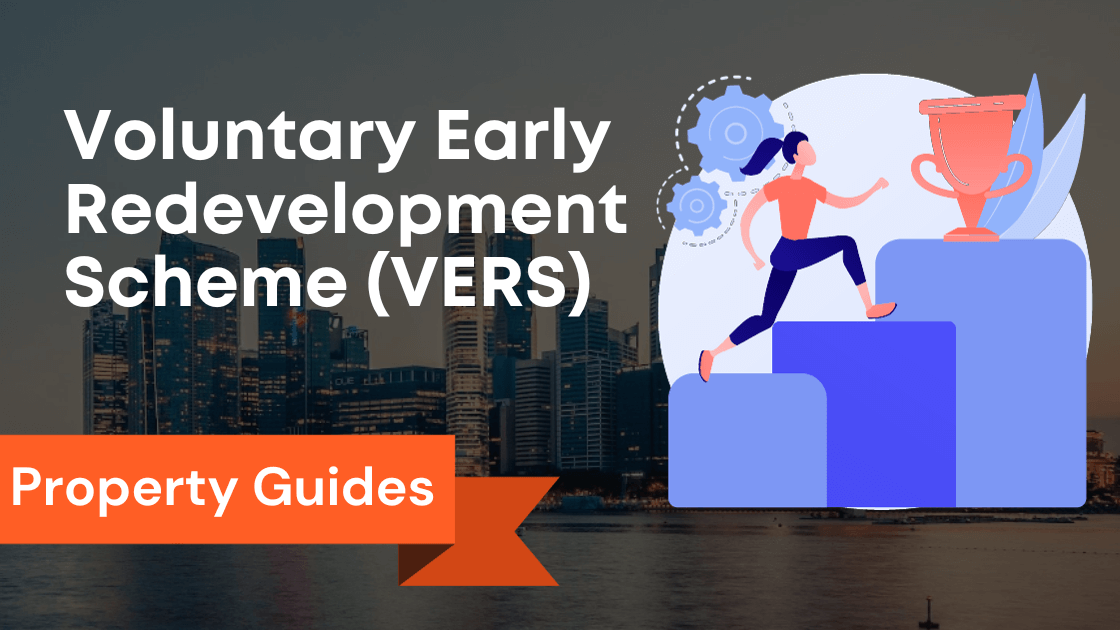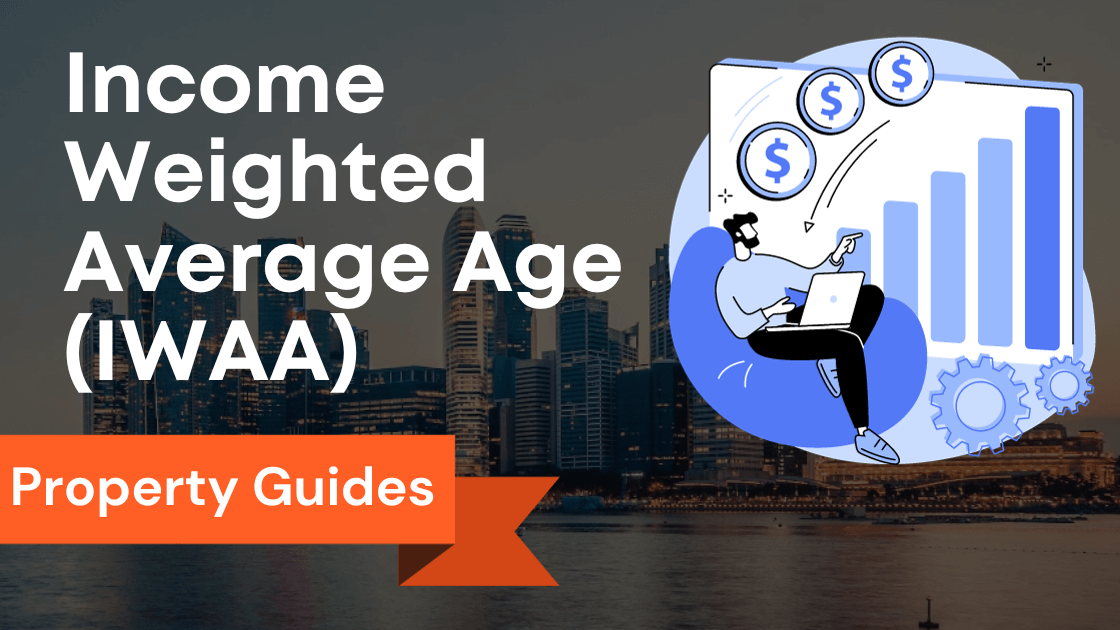
Embarking on a journey into the intricate world of Income Weighted Average Age (IWAA) is like stepping into a portal that unlocks your financial dreams.
In this article, we’ll delve deep into the intricacies of IWAA, demystify its significance, and unveil its role in shaping your financial destiny.
So, fasten your seatbelt as we embark on this extraordinary journey through the captivating realms of IWAA, a concept that can open doors and empower your financial future.
Key Takeaways
- IWAA Definition: Income Weighted Average Age (IWAA) is a crucial factor in loan eligibility in Singapore, considering the borrower’s average age and monthly income.
- IWAA Calculation: IWAA is calculated by summing the product of each borrower’s age and monthly income and dividing it by the total monthly income.
- Loan Eligibility Factors: IWAA influences loan tenure, Loan-to-Value (LTV) ratio, and Total Debt Servicing Ratio (TDSR), impacting the loan amount and monthly repayments.
- HDB Flat Considerations: IWAA is particularly relevant for HDB flat buyers, affecting the loan tenure, eligibility, and borrowing limits.
- Joint Borrower Impact: Joint borrowers should consider IWAA as it takes into account the age and income of all borrowers, affecting loan eligibility and borrowing limits.
- Meeting TDSR Requirement: Borrowers must ensure their monthly debt obligations, including the mortgage, do not exceed 60% of their gross monthly income to meet the TDSR requirement.
- Loan Options and IWAA: A higher IWAA may provide access to more loan options and favorable terms, increasing the chances of loan approval.
- TDSR Importance: Meeting the TDSR requirement is crucial for loan eligibility, as it demonstrates the borrower’s ability to manage their financial commitments effectively.
- Comparison of Loan Packages: Borrowers should review and compare different loan packages, considering IWAA, interest rates, flexibility, and loan tenure to make an informed decision.
- Consultation with Experts: Seeking advice from financial professionals or mortgage specialists can help borrowers navigate the complexities of loan applications and optimize their IWAA.
Introduction
Income Weighted Average Age (IWAA) is a concept that is commonly used in Singapore to determine a borrower’s eligibility for a loan.
It takes into account both the borrower’s average age and their income to assess their ability to repay the loan.
Understanding IWAA is important for anyone looking to get a loan, whether it is for a home, car, or personal use.
Understanding income-Weighted Average Age (IWAA) in Singapore | Loan To Value

When applying for a loan in Singapore, one of the key factors that lenders consider is the borrower’s IWAA.
IWAA is calculated by taking into account the average age of the borrower and their monthly income.
The formula used to calculate IWAA is as follows:
IWAA = ((Age of Borrower 1 * Monthly Income of Borrower 1) + (Age of Borrower 2 * Monthly Income of Borrower 2) + .
.
.
+ (Age of Borrower n * Monthly Income of Borrower n)) / Total Monthly Income
The purpose of IWAA is to determine the loan eligibility of the borrower based on their income and age.
Lenders use IWAA to assess the borrower’s ability to meet their monthly debt obligations and to calculate the loan tenure, loan-to-value ( ) ratio, and total debt servicing ratio (TDSR).
For example, if a borrower has a high IWAA, it indicates that they have a higher income relative to their age and are likely to have a lower loan tenure and higher LTV ratio.
On the other hand, a borrower with a low IWAA may have a higher loan tenure and lower LTV ratio.
It is important to note that IWAA is not the only factor that lenders consider when assessing loan eligibility.
Other factors such as credit history, employment stability, and existing debts also play a role in the decision-making process.
Overview of Income Weighted Average Age (IWAA)
In Singapore, IWAA is particularly relevant for property loans, especially for those looking to finance a Housing Development Board (HDB) flat.
The IWAA calculation is used to determine the maximum loan tenure based on the borrower’s age and income.
The maximum loan tenure for a property loan is 30 years, or up to the age of 65, whichever is shorter.
If the IWAA exceeds the maximum loan tenure, the borrower may be required to either increase their income, reduce their debts, or consider a joint borrower to meet the loan eligibility criteria.
It is also important to note that different banks and financial institutions may have varying IWAA calculations and loan criteria.
It is recommended to use an IWAA calculator or consult with a mortgage specialist to determine the specific IWAA requirements for a particular loan.
In conclusion, understanding Income Weighted Average Age (IWAA) is crucial for anyone wishing to apply for a loan in Singapore.
IWAA takes into consideration the borrower’s income and age to determine loan eligibility, loan tenure, and other loan conditions.
By knowing your IWAA and taking steps to improve it, borrowers can increase their chances of securing a loan and make informed decisions about their financial future.
Importance of IWAA in Home Loan Applications – Loan Tenure | Loan-To-Value LTV | Total Debt Servicing Ratio (TDSR) | Mortgage Servicing Ratio | LTV Ratio
When applying for a home loan in Singapore, understanding the concept of Income Weighted Average Age (IWAA) is crucial.
IWAA takes into account the average age of joint borrowers and their income levels to determine the loan tenure and Loan-to-Value (LTV) ratio.
This article will explore the importance of IWAA in home loan applications and its impact on meeting the Total Debt Servicing Ratio (TDSR) requirement and Mortgage Servicing Ratio (MSR).
How IWAA Affects Loan Tenure and Loan-to-Value (LTV) Ratio
When joint borrowers apply for a home loan, the IWAA calculation considers the age and income of each borrower.
Higher average age and income levels tend to result in a longer loan tenure and a higher LTV ratio.
On the other hand, a lower average age and income levels may lead to a shorter loan tenure and a lower LTV ratio.
The loan tenure affects the monthly mortgage payments, with longer tenures resulting in lower monthly installments.
A higher LTV ratio allows borrowers to borrow a larger percentage of the property’s value, reducing the upfront cash required.
Meeting the Total Debt Servicing Ratio (TDSR) Requirement
In Singapore, borrowers must meet the TDSR requirement when applying for a home loan.
The TDSR limits the borrower’s monthly debt obligations, including the home loan, to 60% of their gross monthly income.
IWAA plays a significant role in meeting this requirement.
Since IWAA accounts for the average age and income of joint borrowers, it influences the TDSR calculation.
A higher IWAA may result in a lower TDSR, increasing the chances of loan approval.
Conversely, a lower IWAA could lead to a higher TDSR, making it more challenging to meet the requirement.
Impact of IWAA on Mortgage Servicing Ratio (MSR)
For HDB flat purchases, the MSR is another important consideration.
The MSR limits the borrower’s monthly mortgage obligations to 30% of their gross monthly income for HDB loans.
IWAA directly affects the MSR calculation, as it considers the income of joint borrowers.
A higher IWAA can result in a lower MSR, increasing the likelihood of loan approval.
In conclusion, understanding the concept of IWAA is crucial when applying for a home loan in Singapore.
It affects the loan tenure, LTV ratio, and plays a significant role in meeting the TDSR and MSR requirements.
Borrowers should consider IWAA when planning their home loan application and consult with mortgage specialists to optimize their chances of loan approval.
Tips for Managing IWAA in Home Loan Applications – Borrower, Housing Loan, and Joint Borrowers
Are you planning to apply for a home loan in Singapore? One factor that lenders consider when approving your loan is your Income Weighted Average Age (IWAA).
Understanding IWAA and how to manage it effectively can increase your chances of getting your loan approved.
Strategies to Improve IWAA
Your IWAA is calculated based on the average age of the borrowers and the loan tenure. To improve your IWAA, you can consider the following strategies:
- Include younger borrowers: If you have joint borrowers, include younger individuals to lower the average age. This can help improve your IWAA and increase your chances of loan approval.
- Choose a shorter loan tenure: Opting for a shorter loan tenure can reduce the IWAA. While it may result in higher monthly repayments, it can improve your chances of loan approval.
- Increase your income: A higher income can positively impact your IWAA. If possible, consider increasing your income through salary increments, promotions, or additional sources of income.
Considerations for HDB Flats and Joint Borrowers
When applying for a home loan for an HDB flat or with joint borrowers, there are some additional considerations to keep in mind:
- HDB Loan Eligibility (HLE) letter: For HDB flats, borrowers are required to obtain an HDB Loan Eligibility (HLE) letter before applying for a loan. The HLE letter will state the maximum loan amount that you are eligible for based on your income and financial situation.
- Total Debt Servicing Ratio (TDSR): Lenders also assess your loan eligibility based on the TDSR framework. The TDSR is a measure of the percentage of your gross monthly income that goes towards debt repayment. It is important to ensure that your monthly loan repayments, including the new home loan, do not exceed the allowed TDSR threshold of 60%.
- Loan-to-Value (LTV) ratio: The LTV ratio determines the maximum loan amount you can borrow based on the value of the property. For HDB flats, the LTV ratio is capped at 75%. It is essential to understand the LTV ratio limits and factor them into your loan application.
Using IWAA Calculator for Effective Financial Planning
To effectively manage your IWAA and financial planning, you can use an IWAA calculator.
This calculator helps you estimate your IWAA based on different loan tenures and borrower ages.
By inputting various scenarios, you can make informed decisions and optimize your IWAA to increase your chances of loan approval.
In conclusion, managing your IWAA is crucial when applying for a home loan in Singapore.
By implementing strategies to improve your IWAA, understanding the considerations for HDB flats and joint borrowers, and utilizing an IWAA calculator for effective financial planning, you can increase your chances of getting your home loan approved.
Remember to seek advice from financial professionals to navigate through the complexities of home loan applications.
Calculator of Income Weighted Average Age (IWAA)

When applying for a home loan or mortgage in Singapore, there are several factors that lenders take into consideration.
One important factor is the Income Weighted Average Age (IWAA).
The IWAA is a calculation that takes into account the age of the borrowers and their monthly income to determine their eligibility for a loan and the loan amount they can receive.
Factors involved in calculating IWAA
The IWAA calculation takes into consideration the loan tenure, the age of the younger borrower, and the monthly income of the borrowers.
If the loan tenure exceeds 30 years or the property’s value exceeds a certain threshold, the IWAA calculation is adjusted accordingly.
The IWAA is calculated by multiplying the age of the younger borrower by their monthly income and dividing it by 12.
This calculation helps lenders assess the borrower’s ability to repay the loan based on their income and age.
To help borrowers determine their IWAA, many banks in Singapore provide online calculators that take into account these factors.
By inputting the borrowers’ ages, monthly income, and loan tenure, the calculator can determine the IWAA and the maximum loan amount they are eligible for.
Importance of considering borrower’s age in loan-to-value (LTV) calculation
Another important aspect of the home loan or mortgage application process is the loan-to-value (LTV) calculation.
The LTV calculation determines the maximum amount a borrower can borrow based on the value of the property and their income.
In Singapore, the LTV calculation takes into consideration the age of the borrower, with stricter limits imposed for borrowers above the age of 65 or when the borrower and co-borrower have a significant age difference.
Considering the borrower’s age in the LTV calculation is crucial as it helps lenders assess the risk associated with the loan.
Younger borrowers with stable income and longer loan tenures may be able to borrow a higher percentage of the property’s value, while older borrowers or those with shorter loan tenures may be subject to lower LTV limits.
It’s important for borrowers to understand the impact of their age on the LTV calculation to accurately determine how much they can borrow.
This can help them plan their finances accordingly and ensure they meet the Total Debt Servicing Ratio (TDSR) requirements.
The calculation of Income Weighted Average Age (IWAA) and considering the borrower’s age in the loan-to-value (LTV) calculation are vital factors in determining the eligibility and loan amount for borrowers in Singapore.
By understanding these calculations and utilizing online calculators provided by banks, borrowers can have a clearer picture of their affordability and make informed decisions when applying for a home loan or mortgage.
IWAA and HDB Flat Buyers

When it comes to purchasing a HDB flat in Singapore, there are specific considerations to keep in mind regarding the Income Weighted Average Age (IWAA).
The IWAA is an important factor that affects loan eligibility and borrowing limits for HDB flat buyers.
HDB or EC, also known as Housing and Development Board flats or Executive Condominiums, are popular forms of public housing in Singapore.
These homes are highly desirable for their affordability, spaciousness, and convenient location.
However, there is an important distinction between HDB and EC flats when it comes to ownership eligibility.
HDB flats can be owned by anyone, including Singapore citizens, permanent residents, and non-residents, while EC flats are exclusively reserved for Singapore citizens and permanent residents.
Furthermore, the rules for ownership of these properties have undergone some changes recently.
As of 6th August 2021, a significant adjustment has been made regarding the eligibility criteria for purchasing an EC flat.
Previously, if you were already married, you would need to jointly apply with your spouse to be eligible for an EC flat.
However, the recent change in policy now allows singles aged 35 and above to apply for EC flats alone.
This shift aims to cater to single citizens who are ready to have a home of their own but have not yet found a life partner.
It recognizes the evolving dynamics of Singaporean society and addresses the growing desire for independence and self-sufficiency among single individuals.
By granting unmarried individuals the opportunity to purchase an EC flat on their own, the government is promoting homeownership and granting more options to its citizens.
This policy change represents a significant step towards inclusivity and ensures fair access to public housing for all eligible individuals, regardless of their marital status.
It is also an acknowledgment that one’s ability to own property should not be solely contingent on their relationship status, but rather their financial capability and readiness to take on the responsibilities of homeownership.
The recent amendment allowing individuals to purchase an EC flat on their own is a positive development that further enhances the accessibility and diversity of public housing options in Singapore.
Specific considerations for HDB flat buyers in Singapore
The IWAA is calculated based on the average age of borrowers and the tenure of the loan.
It is used to determine the Loan-to-Value (LTV) ratio and Total Debt Servicing Ratio (TDSR) for HDB loans. Here are some key points to consider:
- Years for HDB ownership: The total monthly income of the borrowers, instead of just one spouse’s income, is taken into account for IWAA calculations.
- Loans on residential properties: IWAA is applicable for loans granted on or after 6th July 2018 for property purchases or refinancing.
- Property price or value: The loan amount is determined based on the lower of the property price or value, whichever is lower.
- Outstanding housing loans: The IWAA and TDSR limit the total monthly repayments on all outstanding housing loans to 60% of gross monthly income.
- Credit scores: Good credit scores are important for meeting the IWAA requirements, as they reflect your ability to repay loans and manage finances.
IWAA requirements for joint borrowers
When joint borrowers are involved in the purchase of an HDB flat, the IWAA requirements become increasingly important.
Here are some key considerations for joint borrowers:
- Income earners: The income of all joint borrowers is taken into account when calculating the IWAA.
- Lower IWAA, higher loan: A lower IWAA allows for higher borrowing limits.
- Redemption penalties: If there is a partial redemption of the joint ownership, a redemption charge or penalty may apply.
- Joint income: The joint income of borrowers affects the borrowing limits and eligibility criteria.
- Rental income: Rental income from non-HDB properties may be considered when calculating the IWAA.
- Financial difficulties: Joint borrowers facing financial difficulties may seek assistance from agencies and banks to manage their loans and finances.
By understanding the IWAA and its implications, HDB flat buyers can make informed decisions and ensure they meet the eligibility criteria for their desired loan packages.
It is recommended to consult with a property agent or a financial advisor to understand the details of the IWAA and how it applies to your specific situation.
With the right knowledge and planning, you can navigate the loan process smoothly and achieve your homeownership goals in Singapore.
IWAA and Mortgage Options

When it comes to securing a housing loan, there are various factors that lenders take into consideration.
One such factor is the Income Weighted Average Age (IWAA).
HDB flats and Executive Condominiums (EC) are popular choices for housing in Singapore.
However, whether you opt for an HDB flat or an EC, it is important to understand the financial implications and requirements.
One key aspect to consider is the loan available for HDB flats.
The loan quantum for HDB flats is determined by the total income of the applicants.
If you are applying for the loan as an individual, the total income includes your monthly salary, bonuses, and other sources of income.
However, if you are applying jointly with your spouse, the total income will include both your incomes.
It is crucial to accurately calculate your total income as it will directly impact the amount you can borrow for the purchase of an HDB flat or EC.
For HDB flats or ECs granted on or after 6th July 2018, the loan amount available is up to 75% of the purchase price or valuation, whichever is lower.
The loan tenure can range from 25 years or up to the age of 65, whichever is shorter.
Additionally, the loan amount is also subject to a loan ceiling, dependent on the borrower’s income, financial commitments, and loan eligibility.
To determine how much you can borrow, various factors come into play.
Primarily, your monthly salary is a crucial determinant.
The higher your monthly salary, the larger the loan amount you can obtain for your HDB flat or EC.
However, it is important to note that the loan amount should not exceed your ability to repay it.
Lenders take this into consideration and conduct thorough assessments to ensure that borrowers can comfortably meet their loan obligations.
Therefore, it is advisable to carefully evaluate your financial situation and determine an appropriate loan amount that suits your needs and financial capabilities.
By taking these factors into account, you can make informed decisions when applying for a loan for HDB flats or ECs.
How IWAA affects the availability of housing loan options
IWAA is a term used to describe the average age at which borrowers in a joint application are expected to fully repay their mortgage.
This calculation takes into account the loan tenure, loan-to-value (LTV) ratio, and the income of the borrowers involved.
For HDB flats, the maximum loan tenure is typically 25 years.
However, with a higher IWAA, borrowers may be eligible for longer loan tenures, extending up to 30 years.
This longer tenure allows borrowers to enjoy lower monthly mortgage payments, making home ownership more affordable.
Higher IWAA also increases the chances of loan approval and may provide access to more favorable loan packages.
Lenders consider borrowers with a higher IWAA to be financially stable and have a higher capacity to repay the loan.
It’s important to note that IWAA is not the only factor lenders consider.
Credit scores, outstanding loan obligations, and other financial commitments are also taken into account.
However, a higher IWAA can significantly increase the chances of loan approval and open up more loan options.
Importance of fulfilling the TDSR requirement
Another crucial factor in obtaining a housing loan is meeting the Total Debt Servicing Ratio (TDSR) requirement.
TDSR is a measure of the borrower’s ability to repay the loan, taking into account their monthly income and existing debt obligations.
The TDSR requirement stipulates that the borrower’s monthly debt obligations, including the mortgage installment, should not exceed 60% of their monthly income.
This ensures that borrowers do not become financially burdened by taking on excessive debt.
Meeting the TDSR requirement is essential for loan eligibility.
Lenders assess the borrower’s ability to meet their monthly repayment obligations, and a higher income and lower debt commitments result in a higher chance of loan approval.
While meeting the TDSR requirement is crucial, it’s also important to consider other factors such as the loan interest rates, loan package flexibility, and loan tenure.
Borrowers should review and compare different loan options to find the most suitable one that meets their financial needs.
In conclusion, understanding IWAA and fulfilling the TDSR requirement are key factors in securing a housing loan in Singapore.
A higher IWAA can increase the availability of loan options, while meeting the TDSR requirement ensures the borrower’s ability to repay the loan.
By carefully considering these factors and comparing loan packages, borrowers can make informed decisions and find the most suitable mortgage option for their needs.
Conclusion
Assessing IWAA for housing purchase decision
In Singapore, the Income Weighted Average Age (IWAA) is a crucial factor to consider when making housing purchase decisions.
By taking into account the monthly income and age of the property owners, IWAA provides an indication of the financial stability and ability to service loan repayments.
This helps potential buyers assess if they can afford a property and manage their debt load effectively.
Understanding the implications on loan options
For individuals with a lower IWAA, it may be more challenging to obtain certain loan options, such as mortgage loans for private properties.
Banks and lenders may impose stricter criteria or offer higher interest rates for those with lower IWAA due to the perceived higher risk.
It is important for buyers to understand these implications and explore alternative options such as personal loans or credit cards with lower interest rates and flexible repayment terms.
Financial planning strategies to improve IWAA
To improve IWAA and increase the chances of qualifying for better loan options, individuals can adopt various financial planning strategies.
Setting a budget and managing expenses can help increase assessable income and reduce debt load, making it easier to meet loan criteria.
Additionally, individuals can explore opportunities to increase income, such as taking up part-time jobs or investing in assets that generate passive income.
Regularly checking and maintaining a good credit report can also improve IWAA.
It is essential for individuals, especially self-employed individuals, to plan for retirement age and ensure that their IWAA remains favorable even after retirement.
This can be achieved by considering options like Residential Property Loans or equity loans to help manage loan payments during retirement.
In conclusion, understanding and assessing IWAA is crucial for making informed housing purchase decisions in Singapore.
By considering the implications on loan options and implementing effective financial planning strategies, individuals can improve their IWAA and enhance their chances of securing loans with favorable terms and conditions.
Frequently Asked Questions
What is Income Weighted Average Age (IWAA)?
Income Weighted Average Age (IWAA) is a calculation used in meeting the Total Debt Servicing Ratio (TDSR) requirement for bank loans. It takes into account the ages of all borrowers and their respective incomes.
How does IWAA help in meeting the TDSR?
IWAA helps in meeting the TDSR requirement by considering the income and age of all borrowers. It ensures that the loan amount is within the approved limit based on the borrowers’ combined income and age.
What are the factors considered in IWAA calculation?
The factors considered in IWAA calculation are the ages of all borrowers, their employment income, and the loan period.
How does the IWAA calculation affect the loan amount?
The IWAA calculation determines the loan amount that can be granted to borrowers. If the IWAA is too low, it may result in a lower loan limit. Conversely, a higher IWAA may allow for a higher loan amount.
Can IWAA be used for all types of properties?
Yes, IWAA can be used for all types of properties, including residential, condo, executive condo, and private properties.
Is there a limit for the loan tenure when using IWAA?
Yes, there is a limit for the loan tenure when using IWAA. For HDB flats, the loan period extends beyond 25 years, and for private properties, the remaining loan tenure cannot exceed the current age plus 65.
How can I improve my TDSR using IWAA?
To improve your TDSR using IWAA, you can consider increasing your income, reducing your existing loans, or extending the loan period within the allowed limits.
Can IWAA be used for joint borrowing?
Yes, IWAA can be used for joint borrowing. It takes into account the combined ages and incomes of all borrowers.
Are there any restrictions on income types considered in IWAA calculation?
IWAA considers all types of income, including fixed income, variable income, rental income, and income from CPF (Central Provident Fund).
How much can I borrow using IWAA?
The exact loan amount you can borrow using IWAA depends on various factors such as your income, loan period, and the property type. It is best to consult with a bank or financial institution to get an accurate calculation.












